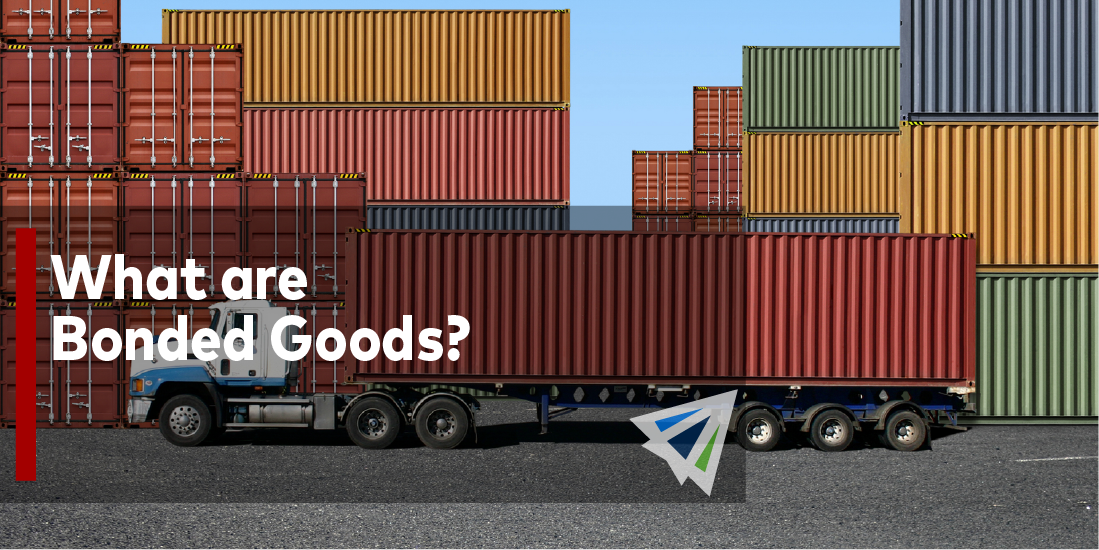There are a ton of steps involved in any import to the U.S. It can be overwhelming when first getting acquainted to the international shipping process – properly labeling, planning, and providing correct documentation at every stop along the way is a lot to manage.
Any time that you import goods to the U.S. where the commercial value exceeds $2,500, you’re required to purchase a Customs bond. There are a couple different types of Customs bonds, each with different benefits, but the overarching purpose of a Customs bond is this – a Customs bond protects a country against importers/exporters who fail to pay associated outstanding costs for a shipment owed to Customs.
So, you may have heard the term “Customs bond” at some point, but what does it mean when someone refers to “bonded cargo”?
What are Bonded Goods?
With any international shipment (at least any that exceed $2,500 in commercial value), the cargo will be subject to duties as defined per its HTS Code, taxes, and potential Customs fees/exams or penalties in the instance of violations.
But how does U.S. Customs know or trust that you as a shipper will pay these fees if they send your shipment to you before then? They don’t – and unfortunately, they simply can’t take up the promise of payment for associated taxes, penalties, and duties on good faith with everyone. As a result, cargo is held in what is known as a “bonded warehouse” until the above dues are paid.
This cargo is referred to as “bonded cargo” or “bonded goods”. So, in essence, “bonded goods” or “bonded cargo” is any foreign cargo that you have imported for which duties and taxes are yet to be paid.
When Will My Bonded Goods be Released?
Bonded goods are only released once U.S. Customs has received payment in full for the above charges. The entire purpose of this practice is to protect U.S. Customs against shippers defaulting on payments or avoiding payment for their cargo.
If you’re struggling to understand what needs to be done to get your cargo released and are confused regarding how, where, and what to pay, reach out to your freight forwarder or give us a call and we’d be happy to help! The process of paying for necessary duties, taxes, and customs fees is relatively simple and shouldn’t take you long at all.
What Happens to Bonded Goods?
Bonded cargo is usually released as stated above when all necessary dues are paid. However, in rare instances where a shipper is unable or unwilling to pay their necessary dues to U.S. Customs, bonded cargo stored in bonded warehouses may be subject to destruction and disposal.
Usually, this time span is quite long, so if you are fretting over the release of cargo which was only recently put under hold by U.S. Customs, you shouldn’t need to worry about it facing disposal. Simply pay all necessary dues and you’ll be good to go!
How to Expedite the Process
At the end of the day, this all boils down to documentation, communication, processes, and planning. Being efficient and precise with your shipping procedures is imperative if you want your cargo to continue moving through U.S. Customs and borders with ease.
If you are tired of waiting on bonded goods, it may be time to have a conversation regarding what your shipping process should look like, and naturally, much of that conversation should focus on your freight forwarder. If you have any questions regarding expediting your future shipments, or solving an issue you are having currently with your bonded cargo, please don’t hesitate to reach out to one of our team members and ask us! We have tons of experience dealing with Customs bonds and other delays at ports, and we’d be happy to help in any way we can!
